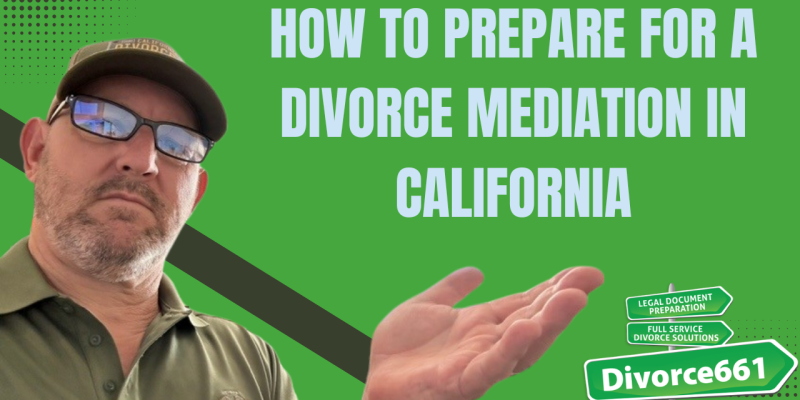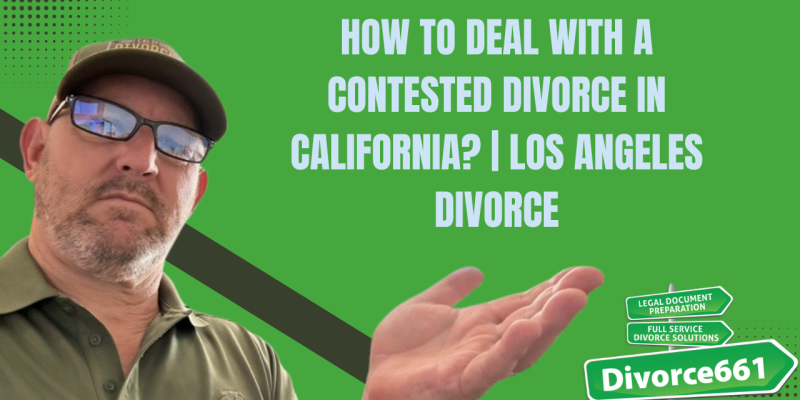How to Deal with a Contested Divorce in California? | Los Angeles Divorce
A contested divorce can turn your life upside down. When spouses cannot agree on custody, property division, or support, the court steps in to decide for you. Once your spouse disagrees with your filing, the divorce becomes contested and the process changes significantly. Understanding the steps ahead, the timelines, and how to manage costs and conflict will make a big difference in the outcome and your stress level.
What makes a divorce contested?
Once your spouse disagrees with your filing, the divorce becomes contested.
A divorce becomes contested when one party objects or files a response that disputes issues raised in the petition. Typical areas of disagreement include:
- Child custody and visitation
- Child support and spousal support
- Division of community and separate property
- Debt allocation
- Temporary orders (who lives where, who pays what while the case is pending)
When disputes cannot be resolved informally, the court will get involved and the case will move into formal procedures designed to surface the facts and, if necessary, prepare the issues for trial.
Temporary orders: custody and support while the case is pending
While the case is pending, either party can request temporary orders to address immediate needs. These temporary orders can cover custody, visitation, spousal support, child support, and who stays in the family home. Temporary orders are important because they shape day-to-day life until a final judgment is entered.
Discovery and financial disclosures: get your facts in order
Discovery is a crucial phase in any contested divorce. Both sides must exchange financial disclosures and other relevant information so the court and the parties can make informed decisions. Discovery can include:
- Requests for production of documents, such as bank statements, tax returns, property records, and business records
- Interrogatories, which are written questions that must be answered under oath
- Depositions, where a party or witness answers questions under oath in person
- Subpoenas to third parties, like employers or financial institutions
Sometimes discovery reveals complex issues that require expert assistance. You may need custody evaluations, forensic accountants, valuators for businesses, or other specialists to prepare accurate reports. These evaluations and expert reports help clarify disputed facts and strengthen your case if it proceeds to trial.
Common documents and evidence to gather
- Recent tax returns and W-2s
- Bank and investment account statements
- Mortgage and property records
- Credit card and loan statements
- Pay stubs and employment records
- Business financials if one party owns a business
- Communications relating to custody, support, or finances
Mediation and settlement conferences: required steps before trial
Before a contested divorce can go to trial, courts often require mediation or settlement conferences. These sessions push parties to negotiate and try to resolve disputes outside of a formal courtroom setting. Mediation is valuable because it:
- Helps parties reach tailored agreements without the uncertainty of a judge deciding
- Can significantly reduce legal fees and emotional strain
- Preserves more control over outcomes like custody schedules and property division
If mediation works, you save time and money. If it does not, your case proceeds toward trial where unresolved issues will be decided by a judge.
If mediation fails: what to expect at trial
If you cannot reach an agreement, the case proceeds to trial. Trials are formal, evidence-driven proceedings that typically involve attorneys and experts presenting testimony and documents to the judge. Expect:
- Extensive pre-trial work, including motions, witness lists, and trial exhibits
- Expert witnesses such as custody evaluators or financial forensic experts
- Multiple court appearances and hearings
- A final hearing where the judge issues orders on custody, support, and property division
In Los Angeles, contested divorce trials can be prolonged and expensive. Between attorney fees, expert costs, and court time, costs can escalate into the tens of thousands of dollars. Trials can take months or longer from start to finish, especially in busy jurisdictions.
Trial strategy and reducing conflict
Approaching a contested divorce with a clear strategy reduces cost and conflict. A focused strategy includes:
- Prioritizing issues to determine where compromise is possible
- Using discovery strategically to narrow disputes rather than escalate them
- Engaging experts only when their input will materially affect outcomes
- Preparing witnesses and exhibits in advance to avoid surprises at trial
- Keeping the court’s attention on the facts that matter most to the resolution
Managing conflict is not just about being less combative. It is about efficient case planning, smart use of resources, and realistic expectations about costs and timing.
Practical tips to protect yourself during a contested divorce
- Start gathering financial documents early and organize them clearly
- Keep written records of major communications about custody, finances, and agreements
- Limit social media activity that could be used in court
- Consider mediation or collaborative strategies before committing to a full trial
- Get clear cost estimates from attorneys and ask about flat-fee options to control expenses
- Focus on settlement where possible to minimize emotional and financial costs
Next steps and where to get help
Contested divorces are complex, especially in Los Angeles and across California. If you are facing disputes over custody, property, or support, take action early: gather documents, speak with a qualified professional, and consider mediation before trial. If trial becomes necessary, a careful strategy can reduce the time, cost, and conflict involved.
If you want help navigating a contested divorce, schedule a free consultation at Divorce661.com. We provide guidance through petitions, disclosures, mediation, and trial preparation, and offer flat-fee divorce options to help manage costs while focusing on reducing conflict and moving your case forward efficiently.
Question to consider
Do you think most contested divorces could be resolved with mediation? Reflect on that as you plan your next steps.




